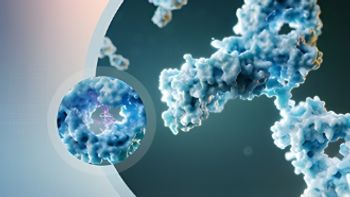
Innovative Sampling Device Holds Important Potential for Gut Microbiome Research
At HPLC 2023, Oliver Fiehn of the University of California explained results gathered from a device that can be used during daily digestion.
Studying the gut microbiome can shed light on important compounds that are important to improving overall global human health, according to a speaker at the High Performance Liquid Phase Separations and Related Techniques (HPLC 2023) conference held in Dusseldorf, Germany this week (1).
Oliver Fiehn from the University of California reported on data they gathered employing an ingestible sampling device that allows for the collection of upper intestinal luminal contents during routine daily digestion.
The study involved 15 healthy people who swallowed capsules after lunch and again after dinner for two consecutive days and then sampled. The team analyzed 274 intestinal samples alongside 60 corresponding stool homogenates using metabolomics and 16S rRNA sequencing techniques.
Remarkably, the researchers identified 1,909 metabolites, including previously unknown compounds, sulfonolipids, and novel bile acids, by combining data from three LC–MS/MS assays. The findings revealed striking differences between stool metabolomes and intestinal tract samples, emphasizing the importance of directly studying the small intestine. The research team asked the study participants to document their meals, and the research revealed metabolomes significantly changed with alcohol and dessert intake.
The researchers observed that essential nutrients and dietary lipids decreased along the intestinal tract, while other diet-related metabolites increased. Notably, bile acids exhibited both expected and novel variations, providing valuable insights into their role in gut health.
Moreover, the study highlighted the impact of antibiotic treatments on the intestinal metabolome. Subjects who had undergone antibiotic therapy up to six months prior to sampling displayed markedly different metabolome patterns, underscoring the long-lasting effects of antibiotics on the gut.
This groundbreaking research not only deepens our understanding of the human intestinal metabolome but also unveils subject-specific chemical phenotypes within the gut. The study's findings hold immense potential for advancing personalized medicine and providing novel avenues for diagnosing and treating gastrointestinal diseases.
The development of the non-invasive sampling device marks a significant milestone in the field of gut microbiome and metabolome research. As further studies build upon these findings, Fiehn noted researchers are taking steps toward a more comprehensive understanding of the complex interplay between the human body and its resident microbes, including inviting collaborative research with other teams (he encouraged interested collaborators to reach out) paving the way for innovative interventions and therapies to promote gut health.
Reference
(1) Fiehn, O. Space Odyssey 2023: Exploring Temporal and Regional Metabolomes. Presented at: HPLC 2023. June 18-22, 2023. Duesseldorf, Germany. KN06.
Newsletter
Join the global community of analytical scientists who trust LCGC for insights on the latest techniques, trends, and expert solutions in chromatography.




